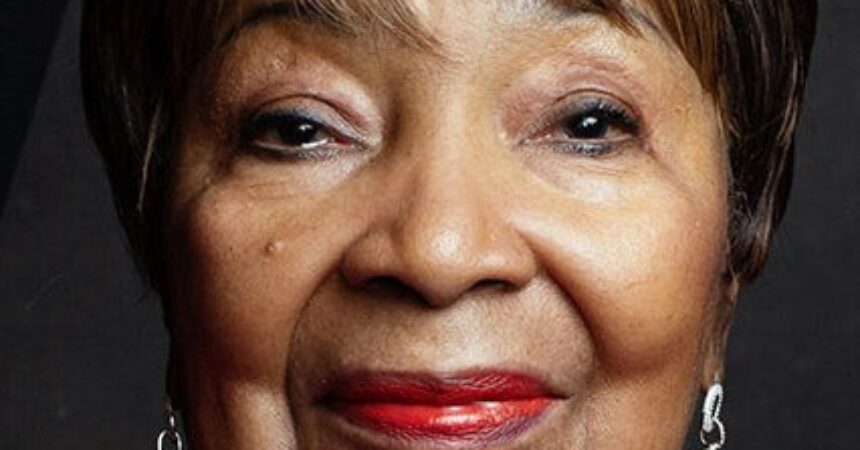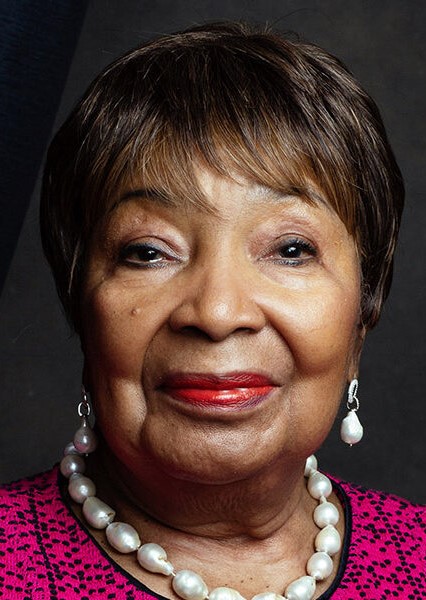
Analysis
Sad circumstances of Rep. Eddie Bernice Johnson’s death – far too typical

By Barbara Reynolds, Ph.D.
TriceEdneyWire.com
Once in a private moment after I had finished producing her weekly cable show for her Dallas district as her communications director, Rep. Eddie Bernice Johnson shared with me what really mattered.
“I really love compassionate nursing because nurses can do anything. Keep your eye on them,” she said.
In that one sentence she was sharing what a tough job it was becoming the first registered nurse in 1997 to be elected to Congress, but nurses could manage that and more.
To learn from Rep. Johnson’s lawyer that she recently died a “terrible, painful death” in a rehabilitation center without receiving the kind of compassionate nursing from the profession she loved that could have saved her life was sad and shocking. Yet, it was a reminder that African-American women , no matter who they are, are all often disrespected by the medical profession, a barrier that even Johnson, one of the most recognized and honored women in Texas could not dispel.
The Congresswoman’s death resulted from a September back surgery that became infected when she was left to lie in her own feces in her bed at a rehab medical center while she repeatedly pleaded for help that didn’t come, according to Les Weisbrod. He is a malpractice attorney for the family who is threatening to sue the Dallas Baylor Scott & White Institute for Rehabilitation for medical negligence. After undergoing more surgery to treat the infection, Johnson, 89, died from a spinal infection while in hospice care at her home on New Year’s Eve. She retired from Congress last year.
As horrible as the situation that denied one of the most visible personalities in Dallas with powerful friends in Texas and in the nation’s capital to die with dignity and unnecessary pain, her plight is not uncommon, according to Weisbrod.
“It can happen to anybody, whether they’re a Congressperson or not,” he said. “I’ve probably represented clients suing every major hospital in North Texas.”
Two problems contributed to the demise of Johnson. First, are how the medical profession shows an institutionalized disregard for people of color, especially women, and how understaffed most nursing facilities are, which calls for patients to enter hospitals with their own medical advocate that will skillfully monitor their nursing care.
A recent Pew Research study revealed that 49 percent of those studied say a major reason why Black people generally have worse health outcomes is because health care providers are less likely to give Black people the most advanced medical care. A roughly equal share (47 percent) says hospitals and medical centers giving lower priority to their well-being is a major reason for differing health outcomes. Another often heard complaint is the unfounded belief that Black women can stand more pain than Whites resulting in their denial of requested painkillers,
Dr. Rhoda Alale is an Ohio registered nursing consultant and a former faculty member of the Howard University School of Nursing. She charges that the death of Rep. Johnson is a stark reminder of how Black people are treated by health care institutions nationwide. She argues that health disparities for people of color are at an all-time high, citing recent personal observations. “My 15-year-old granddaughter received a letter canceling her insurance because they say she had seen too many specialists.”
Why does sickness disqualify you from insurance? And she also pointed to another patient who consulted her for help when he went into the hospital for a minor illness but came out with a major illness because of an open wound infection, an all-too-common malady.
Many health professionals are also urging patients to have a medical advocate, preferably a family member or a private nurse within the medical institutions to scrutinize the nursing care. Alale says that nursing must change and should adopt the pediatric care model with families as inpatients, like some pediatric wards that have an extra bed, and shower in the room.
Adding to the systemic problems within nursing are reports of a desperate shortage of nurses resulting from the COVID epidemic where so many nurses were victims or became burnt out and did not return to the profession.
Dr. Carthenia Jefferson, RN, an official of the National Black Nurses Assn. which Rep. Johnson was also a member, said she hopes the terrible treatment of the congresswoman will bring national attention for the need for the improvement of quality care in rehabilitation and other health care institutions. “I am saddened beyond words.”
Dr. Jefferson is so right. If Rep. Johnson’s painful premature death will turn the spotlight on the sickness within the medical profession, her love for the nursing profession will deserve her affection.







